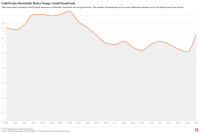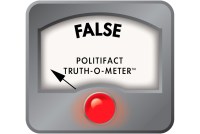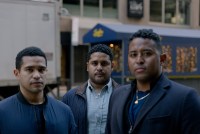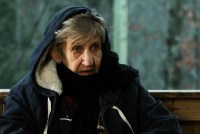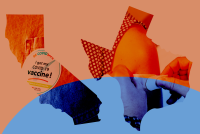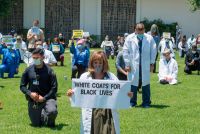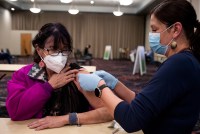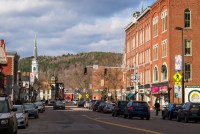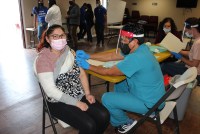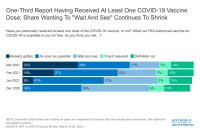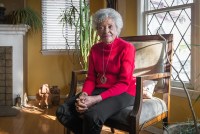Latest Morning Briefing Stories
Seed Money: Black Entrepreneurs Hope Pandemic Gardening Boom Will Grow Healthier Eating
Rapper DJ Cavem Moetavation is pushing beats and beets. A vegan, he’s selling seeds to encourage more people to eat healthier by growing their own food. His efforts are part of a national movement of Black-owned seed companies that merges pandemic-inspired gardening with efforts to expand healthier food options.
Racism Derails Black Men’s Health, Even as Education Levels Rise
Researchers who study health among various racial and ethnic groups, as well as the social factors that influence health outcomes, say the findings suggest that the power of discrimination to harm Black men’s health may be more resistant than previously understood.
Homicides Surge in California Amid Covid Shutdowns of Schools, Youth Programs
California endured a brutal spike in homicides in 2020 across large swaths of the state, registering the largest year-over-year increase in victims in three decades. Experts cite as one significant factor a rise in gang violence fueled by pandemic shutdowns of schools, sports leagues and programs for at-risk youth.
Biden Boasts About Equitable Senior Vaccination Rate by Race Without Data to Back It Up
There is no public national data source that tracks vaccination rates based on a combination of race or ethnicity as well as age. Most state-level data shows that disparities exist in vaccine rates between white people and people of color.
Un matrimonio de inmigrantes de Haití y México, y sus tres hijos, narran lo que es sentir el racismo en carne propia.
In 2015, Houston police officers stepped into Alan Pean’s hospital room, closed the door and shot him through the chest. Nearly six years later, his survival has brought the Pean family a wrenching legacy and conflicted sense of purpose.
In Appalachia and the Mississippi Delta, Millions Face Long Drives to Stroke Care
Across Appalachia and the Mississippi Delta, where death rates from stroke are above the national average, routing patients from rural areas to the right level of care can be an intricate jigsaw puzzle. The closest hospital might not offer the full scope of stroke treatments, but hospitals with more advanced care could be hours away.
A lo largo de los Apalaches y del delta del Mississippi, donde las tasas de muertes por ataques cerebrales está por encima del promedio nacional, dirigir a los pacientes de áreas rurales al nivel adecuado de atención puede ser un rompecabezas intrincado. El hospital más cercano puede no ofrecer un espectro completo de tratamientos, y los centros de atención de avanzada pueden estar a horas de distancia.
California and Texas Took Different Routes to Vaccination. Who’s Ahead?
California stresses equity for minority groups. Texas is all about personal choice and liberty. Both are struggling to vaccinate Latinos and contending with vaccine hesitancy among conservative communities.
KHN’s ‘What the Health?’: Health Care as Infrastructure
President Joe Biden’s infrastructure proposal includes items not traditionally considered “infrastructure,” including a $400 billion expansion of home and community-based services for seniors and people with disabilities, and a $50 billion effort to replace water pipes lined with lead. Meanwhile, the politics of covid-19 are turning to how or whether Americans will need to prove they’ve been vaccinated. Joanne Kenen of Politico, Tami Luhby of CNN and Sarah Karlin-Smith of the Pink Sheet join KHN’s Julie Rovner to discuss these issues and more. Plus, Rovner interviews KFF’s Mollyann Brodie about the KFF COVID-19 Vaccine Monitor.
Events of 2020 Moved Medical Students to Political Activism
The emergence of an organization for med students motivated by progressive concerns highlights the changing attitudes of some physicians in training.
Montana Sticks to Its Patchwork Covid Vaccine Rollout as Eligibility Expands
Montana’s overstretched counties and tribal governments have developed a mishmash of policies and plans that require ingenuity and mutual support to work. A reporting project by KHN, Montana Free Press and the University of Montana School of Journalism finds the biggest test of that disparate system looms as vaccine eligibility expands. Plus: a county-by-county guide to vaccine availability in Montana.
Vermont to Give Minority Residents Vaccine Priority
Covid cases have disproportionately affected the state’s Black residents, so officials are moving them to the front of the line for vaccinations before the state expands eligibility to all adults.
De auto en auto y de puerta en puerta para vacunar a los más desprotegidos
El 15 de abril, todos los adultos de California serán elegibles para inscribirse para recibir una vacuna y, a principios del verano, el objetivo es tener suficientes dosis para cualquier adulto que la quiera.
Beating the Pavement to Vaccinate the Underrepresented — And Protect Everyone
In poor neighborhoods and desert towns, community activists — some unpaid — are signing up hard-to-reach people for vaccination appointments. Experts say these campaigns are key to building the country’s immunological armor against new outbreaks.
Covid Vaccine Hesitancy Drops Among All Americans, New Survey Shows
A nationwide poll released by KFF also revealed which arguments are most compelling to persuade people to get a shot — and which ones are unlikely to work.
How One State’s Public Health Defunding Led to Vaccination Chaos
The underfunding of public health and political backlash destabilized Missouri’s vaccine rollout, creating racial inequity and forcing some residents to drive hours to get shots.
Stop Blaming Tuskegee, Critics Say. It’s Not an ‘Excuse’ for Current Medical Racism.
The Tuskegee syphilis study is often cited as a reason Black Americans might hesitate to take the covid-19 vaccine. But many people say that current racism in health care and lack of access deserve more attention to move more Black Americans toward vaccine protection.
‘An Arm and a Leg’: In Vaccinating Philadelphia, A Mix of the Good, the Bad and the Ugly
Covid vaccinations are ramping up, so “An Arm and a Leg” checked in on the effort in Philadelphia, where capitalism and compassion have clashed.
Journalists Analyze the Covid Relief Bill
KHN and California Healthline staff made the rounds on national and local media this week to discuss their stories. Here’s a collection of their appearances.





